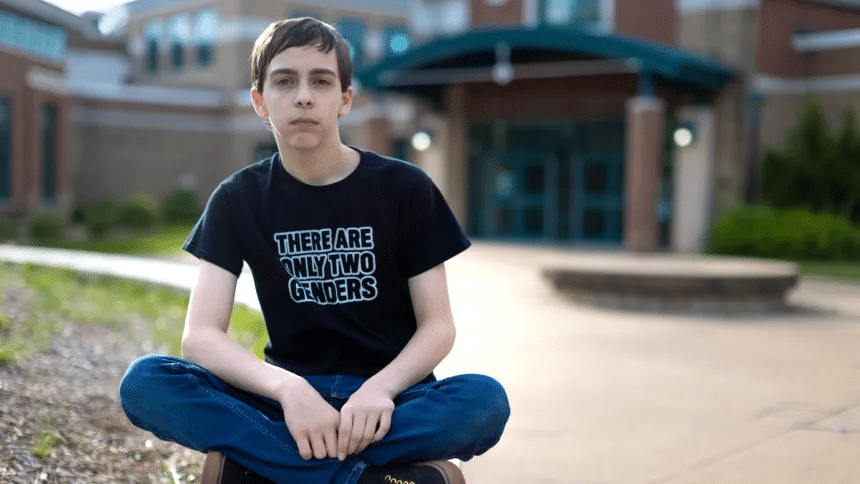Can schools censor the messages on students’ clothing?
In a disappointing move, the Supreme Court declined to review a case that threatens freedom of speech for over a million students across New England. In thousands of public schools, administrators now have power to silence student speech they dislike.
The case involved a Massachusetts middle schooler named Liam Morrison, who was banned from class for wearing a shirt that read, “There are only two genders.” When he taped “CENSORED” over the original message, the school banned that, too.
Liam’s school encourages students to express the view that there are many genders, but when he offered a contrary view — the school silenced it.
The prohibition on viewpoint-based censorship is a cornerstone of our First Amendment.
Without it, the concept of free speech loses much of its meaning. Yet when Liam and his parents, represented by the Alliance Defending Freedom, brought suit against the school and the town of Middleborough for violating his freedom of speech, the First Circuit disregarded settled First Amendment law to uphold the school’s censorship.
That isn’t just a bad ruling. It’s a dangerous one.
It gives school administrators far too much power to silence unpopular student opinions.
The Supreme Court could have reviewed the First Circuit’s problematic decision and put it to rest. Instead, it looked the other way, leaving the lower court’s decision to remain on the books.
But the fight for students’ right to express themselves with political clothing isn’t over.
Next week, a federal appeals court in Cincinnati is set to hear oral arguments from FIRE in the case of a school district that forbade two Michigan middle-schoolers from wearing sweatshirts with the anti-Biden slogan “Let’s Go Brandon.”
FIRE, which is representing the students in this case, sued Tri County Area Schools after administrators ordered the boys to remove the sweatshirts despite the clothing causing no disruption. The school district alleges the slogan is “profane” — even though it contains no swear words and has been used multiple times in congressional speeches.
No matter which political side they’re on, students have the First Amendment right to express their views in public schools.
We’re fighting to show that public schools must respect students’ right to peacefully express their political opinions — even if school officials don’t like the message.
This article appears here with the permission of the Foundation for Individual Rights and Expression.
The Free Speech Center newsletter offers a digest of First Amendment and news-media news every other week. Subscribe for free here: https://bit.ly/3kG9uiJ

